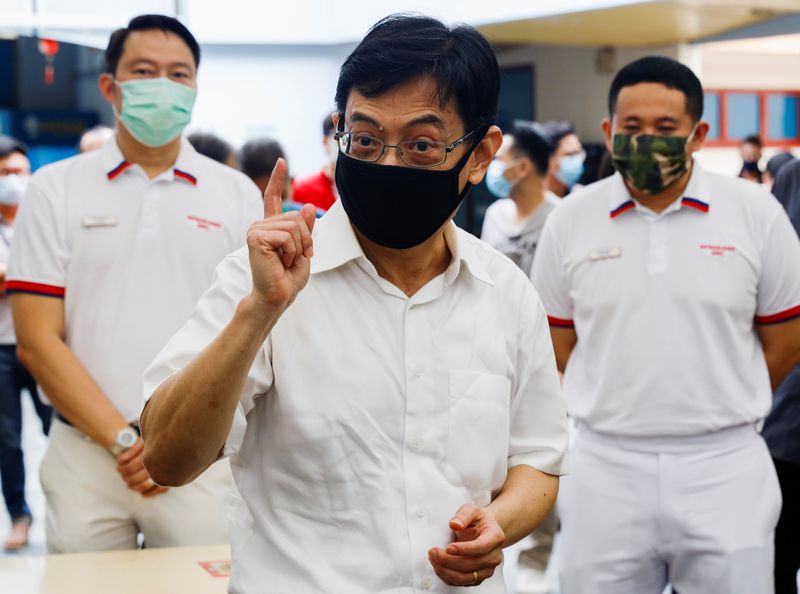By Aradhana Aravindan and Anshuman Daga
SINGAPORE (Reuters) - For all the predictability of elections in Singapore, one result will be keenly watched when the city-state votes on Friday as finance minister Heng Swee Keat must win an unsafe seat to show people he has what it takes to be a future leader.
Promoted last year to deputy prime minister, 59-year-old Heng is in line to succeed Lee Hsien Loong, as the son of Singapore's modern founder Lee Kuan Yew has said he will step down in coming years.
Having held power since independence in 1965, the People's Action Party (PAP) is expected to notch another victory in the July 10 election.
But in a late re-jig of its nomination list, the PAP has set Heng the task of winning an East Coast seat where it scored just 60.7% of the vote in 2015, among its narrowest winning margins.
Analysts say the contest will test public support for the mild-mannered technocrat at a time when Singapore is facing its deepest ever recession due to the COVID-19 pandemic.
"Heng is thus under pressure not just to win for the PAP, but achieve an emphatic result," said Garry Rodan, a political scientist at the University of Queensland.
The East Coast seat is one of Singapore's so-called group representation constituencies, where parties field teams of candidates that include members of ethnic minorities to ensure their representation in the Chinese-majority city-state.
Heng - who steered the central bank through the global financial crisis - has already doled out nearly S$100 billion ($72 billion) in stimulus this year to help carry Singapore through the recession.
Inderjit Singh, a former PAP lawmaker, said even a narrow win would help "legitimise" Heng's future premiership as the PAP was expected to lose the seat before the vote was called.
Making his nomination day speech last week, the former central banker and policeman's campaign got off to a rocky start, as he stumbled over his words.
The flub spawned online memes and was mocked in marketing campaigns by restaurant chain Nandos and the tourism board in neighbouring Malaysia.
Unused to their leaders sounding so unclear, some Singaporeans questioned Heng's ability to represent the country on a global stage, but others said it made him more relatable.
Still, analysts say, Heng's lack of charisma and seemingly soft approach could be a handicap if he needs to persuade people to back unpopular policy decisions.
Lee Kuan Yew once described Heng as "one of the finest minds among the civil servants" but questions were also raised about Heng's health after he suffered a stroke and collapsed during a cabinet meeting in 2016.

When he awoke from a six-day coma, Heng scribbled: "Is there a Cabinet meeting today? Where are the papers?", according to local media reports.